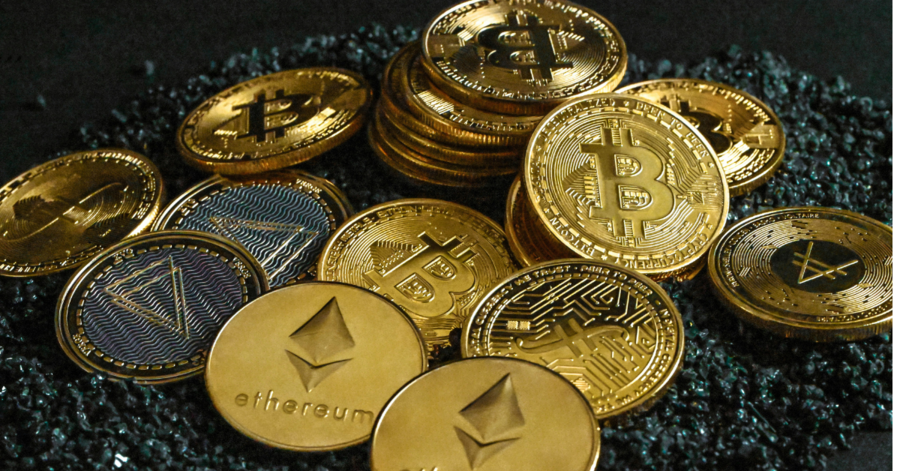Is 2025 THE Time to Get Into Crypto? Learn How to Pick a Cryptocurrency Exchange
Cryptocurrency, a facet of the revolutionary digital age we are lining in, has transformed from a niche experiment to a global financial movement.
Despite still being relatively young, by now it is an essential financial tool for many, but with great opportunity comes great responsibility.
Why has choosing the right exchange become more critical than ever?
The New 2025 Reality: No Better Time to Get Started in Crypto
Remember FTX? The exchange that seemed too big to fail until it did.
Its 2022 collapse still haunts crypto markets in 2025, and for good reason:
it was a complete breakdown of trust, governance, and basic financial practices.
But that's not the only challenge facing crypto users today. Governments around the world are tightening their grip on cryptocurrency, implementing stricter rules that can freeze your assets or block your transactions at a moment's notice. Countries are increasingly policing digital spaces, pushing harder AML/KYC requirements, emergency freeze powers, and cross-border controls that force exchanges to comply or shut down.The Rising Tide of Regulation and Digital Censorship
When we talk about crypto exchanges, most people start with centralized exchanges (CEX) because they're user-friendly, familiar, and have the means to accept your regular money. But choosing the right CEX in 2025 requires understanding extra points that weren't as important only a few years ago. Security First: Audits, Insurance, and Cold Storage The best exchanges keep 95% or more of customer funds in cold storage, publish regular Proof-of-Reserves reports to show they actually hold the cryptocurrencies they claim, and carry insurance policies that protect against theft or internal fraud. Look for exchanges that undergo independent security audits and have never been successfully hacked.Fundamental Criteria for a Centralized Exchange (CEX) in 2025
Security is also about compliance, love it or hate it. Strong KYC/AML procedures might seem annoying, but they actually protect the exchange from regulatory shutdown, which in turn, protects your continued access to funds on their balance. The "0.1% trading fee" in the is just the tip of the iceberg. Real exchange costs include maker fees (when you provide liquidity), taker fees (when you take liquidity), withdrawal fees, deposit fees, and spread costs.Costs and Liquidity: The Hidden Costs of Crypto Trading
The Regulatory Landscape and What to Look For Understanding crypto regulation is no longer optional, it has become essential for protecting your investments. Some exchanges take a "regulation-first" approach: they proactively seek licenses, implement strict compliance, and work closely with authorities. This strategy offers stability and institutional trust, but it's a double-edged sword.Advanced Considerations for the Savvy Investor
The choice between centralized exchanges (CEX) and decentralized exchanges (DEX) used to be a technical debate, but not anymore. Today, it's a fundamental decision about control, security, and convenience that every crypto user must understand. The Case for Centralized Exchanges (CEX) Centralized exchanges remain the most popular choice. They offer user-friendly interfaces that feel familiar to anyone who's used online banking or stock trading platforms. They provide deep liquidity and tight spreads, meaning you get fair prices and fast execution on your trades. More importantly, CEX platforms also offer fiat on-ramps, making it easy to buy cryptocurrency with your credit card or bank account. When something goes wrong, you can contact customer support and get help. The trade-off is obvious: convenience comes at the cost of control.CEX vs. DEX: The Great Debate of 2025
Decentralized exchanges like Uniswap represent the original crypto vision: peer-to-peer trading without intermediaries. When you use a DEX, you maintain custody of your funds throughout the entire trading process. There's no central authority that can freeze your account or restrict your access. DAX trading is also more private — most platforms don't require KYC verification, and transactions are pseudonymous on the blockchain.The Case for Decentralized Exchanges (DEX)
Summary Checklist to Help You Choose
Daily updates from the heart of Hollywood, right to your inbox By entering your email and clicking Sign Up, you’re agreeing to let us send you customized marketing messages about us and our advertising partners. You are also agreeing to our Terms of Service and Privacy Policy.Keep this checklist handy whenever you're evaluating a new exchange or reviewing your current setup.
If you are having doubts about being late to crypto, this should really be the least of your concerns. Exploring alternative finance today can secure your autonomy and independence tomorrow. This is the real value of crypto, and you have not missed out on this at all just yet.The Future is in Your Hands 2025 has changed a lot in crypto and the digital space, and this train is not stopping anytime soon.
